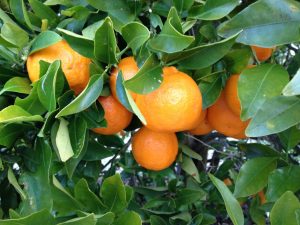I decided to write about nutrition and science this week due to a blog post that I recently read about where to seek the best nutrition advice. I realised from reading this article that there is still a lot of confusion about science and the different types of advice given about nutrition and food.
Currently we are bombarded by information about food and health — it comes from people who are trained and untrained to provide such guidance. So where does science fit into this advice? There is quite a bit of technical language in this post, so please ask any questions in the comments section below.
Nutrition and science
Science is a method of enquiry — a research study starts with a question (Does increasing fibre in the diet improve blood sugar control?) or a hypothesis (Reducing the glycemic index of the diet improves blood sugar control). Each study completed in an area of research, such as diabetes, is like a piece of the jigsaw puzzle that explains how to improve blood glucose for example. This is why credentialed (included registered and accredited) health practitioners trained in science do not focus on one study alone. A number of studies are required to complete and explain the picture.
TIP: Be wary of scientific evidence that refers to one or only a few studies.
There are difference types of scientific studies too. Some are conducted with human cells (in-vitro), where as others are conducted in animals. These types of studies help to discover how a particular food or type of food may cause a particular reaction in the body, such as an increase in blood sugar. Studies with real people are quite varied in their purpose and the strength and validity of their findings.
Observational studies are either retrospective (looking back at eating and lifestyle choices to explain current health or illness) or prospective (assessing the health of people today and then in the future, linking their eating and lifestyle choices to changes in their health). This type of research identifies associations between behaviours and health, for example people who sleep less than 6 hours a night have more risk of developing type 2 diabetes. But the research cannot prove that a lack of sleep caused the diabetes. However, the more studies that show that a lack of sleep is related to diabetes, then the more validity this association has, and it would be considered a true risk factor for developing the disease.
Interventional human studies are considered more reliable at showing causal relationships between eating and lifestyle choices and health or illness. You may have heard of the term randomised control trial (RCT). This means that study participants are randomly assigned to a type of intervention or a control (no intervention or standard care). An example of a RCT for people with type 2 diabetes involves random assignment to one of three study groups: a low Glycemic Index (GI) eating plan, a portion controlled healthy eating plan (control group) or low GI eating plan plus exercise. This particular study aims to assess:
- any difference in blood glucose control between people following the portion control plans compared to those on the GI eating plans;
- plus additional benefits of exercise with a low GI plan compared to the low GI eating plan along.
A RCT also aims to control other factors that may impact on the people’s blood sugar control and overall health such as sleep, routine exercise, cigarette smoking and the drinking of alcohol. However, as for observational studies, a number of RCTs are required to strengthen the validity a causal relationship between behaviours and health. Scientists and healthcare practitioners require more than one study to change their views and their practice.
TIP: Be wary of ‘diets’ and eating recommendations that exclude whole food groups.
Understanding the significance of scientific research is complex. Unfortunately it is not something that you can fully understand unless you have experience in research, or have trained in scientific research methods. This means that you are relying on the interpretation of science by the media and your healthcare practitioners. If the media present full interviews with researchers, then you will gain a better view of the meaning of the research findings, however if you only receive snippets of the interview then it could very well be biased and not truly represent the findings.
Credentialed healthcare practitioners, such as registered or accredited professions, refer to scientific research and healthcare guidelines that are based on science, as well as their practical experience. I encourage you to take an interest in nutrition and health science and to ask your healthcare practitioners about research findings that might be of benefit to you.
You are what you eat
The current Australian Dietary Guidelines are a good starting point for all of us. These are based on science. You might like to refer to my posts on:
How you respond to certain foods may differ from someone else. Similarly people with type 2 diabetes require different eating patterns to match their varying health and lifestyle needs. I encourage you to adopt a mindful approach to eating. Take notice of how different foods and quantities affect you — your blood sugar level (if you have type 2 diabetes), energy levels and digestive function (normal, bloating, constipation, pain).
